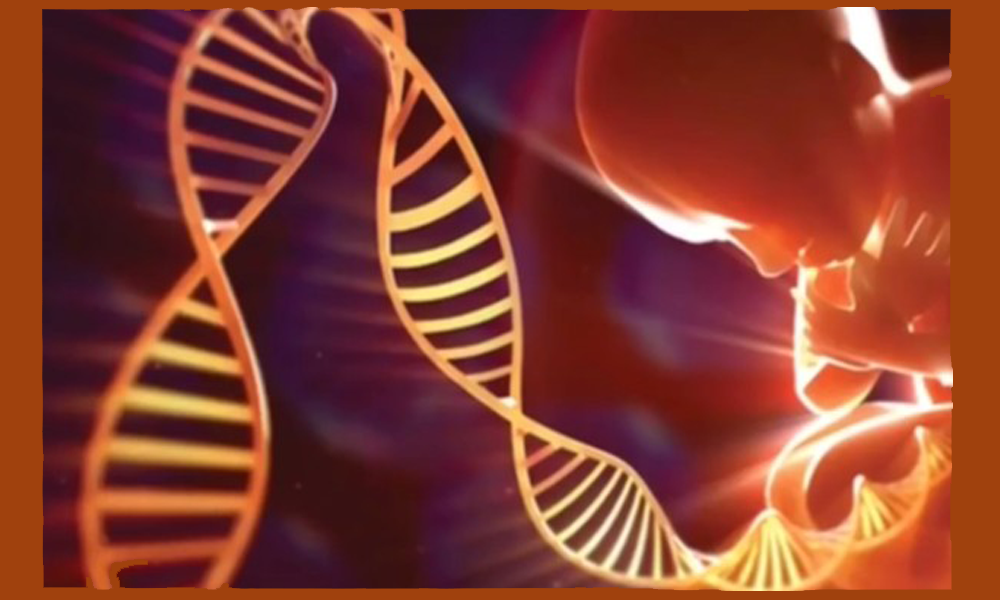
Many birth defects in infants can now be identified early during the pregnancy through prenatal testing. While screening tests are offered to all pregnant women irrespective of the personal medical or family history, a higher than usual risk often necessitates more accurate diagnostic tests, writes Niby Jacob Elackatt, Genetic Counsellor, Strand Life Sciences Pvt. Ltd., Bangalore, as he explains the long-drawn process and its benefits.
A healthy baby is a happy baby. As parents, one would always want to ensure good health for their baby even before when he or she is born. The best way to ensure good health of the baby is by being aware of screening measures, and talking to your doctor or a genetic counsellor.



Out of the 50 babies that are born one has some defect. That constitutes 2 per cent of the total number of new born babies. The causes may be genetic, i.e., passed on from parents or chromosomal, for example, a Down Syndrome or may be due to exposure to environmental factors such as viral infections, drugs, or a medical condition affecting the mother. In some of the cases, there is no apparent cause.

Testing during pregnancy is optional and should be discussed with a doctor, or a genetic counsellor. Making a decision to have a test or not is always up to the couple. In general, there are two main types of prenatal tests “ a screening test and a diagnostic test.

Many birth defects in infants can be identified early during the pregnancy through prenatal testing. Such tests are often recommended by a gynaecologist or sonologist. The recommendations can be based on family history, personal history or pregnancy history of the mother.
Screening tests are offered to all pregnant women irrespective of the personal medical or family history, and these results give an estimate of the probability that a baby has a health problem. Examples of screening tests are ultrasounds, non-invasive prenatal testing, first trimester screening, and second trimester screening. When a higher than usual risk is identified by a screening test, couples are often referred to a genetic counsellor or a clinical geneticist for a genetic consultation. The clinical geneticist or genetic counsellor helps the couple in the decision making process of whether or not to pursue diagnostic tests and supports them through the testing process.
During a genetic counselling session, the genetic counsellor helps the couple understand the intricacies of the identified risks and what it could result into. Details about how such conditions are diagnosed, strategies on how a family may cope with the risk of a genetic condition during pregnancy, are shared to help them to deal with the issues associated with a genetic condition after birth, should it be present in the baby.
Diagnostic tests provide accurate results and are always offered as a followup to a screening test where a higher than moderate risk is identified for a certain genetic condition or anomalies are identified on ultrasound scan. These tests are conducted to confirm the diagnosis in the baby. Such tests may have associated risks in some cases. Examples of diagnostic tests include chorionic villus sampling (CVS) and amniocentesis.
The screening and diagnostic test reports are made available at the earliest possible, that is within two-four weeks, depending on the type of test and considering the nature of urgency. The reports are handed to the couple by a genetic counsellor or a clinical geneticist who understands the report, and can help with the further course of action.
When a baby is found to have a problem before birth, the parents are given information about the health problem that has been identified. Depending on the stage of the pregnancy, a couple will be able to discuss options of planning for the birth of the baby or ending the pregnancy. Whether one decides to continue or end a pregnancy, support and information will be offered. Pregnancy can be terminated up to 20 weeks if the baby is diagnosed to have a genetic problem.
Although the doctor or genetic counsellor can never guarantee the birth of a healthy baby, couples often feel reassured about their assessed level of risk, and are likely to feel more confident in their decision-making about screening and testing options.
Although the mention of a prenatal test may be quite daunting, the benefits of undergoing screening can be reassuring and helpful. Talk to your doctor or genetic counsellor to learn more about prenatal testing options for yourself.
Some of the factors which increase the likelihood of a baby having health problems are:
- The mother is in her mid-30s or older (not necessarily her first pregnancy)
- Where there is a close relative or a previous child with a serious health problem
- There has been exposure to some chemical or other environmental factors during the pregnancy
- One or both parents of the baby has a health problem that may be passed on
- One or both parents of the baby are known carriers of a particular faulty gene
- Where the parents are related by blood (for example, first cousins)
(Disclaimer: The views expressed by the author in this article are his personal and do not in any way represent the views of Elets Technomedia Pvt Ltd)
Be a part of Elets Collaborative Initiatives. Join Us for Upcoming Events and explore business opportunities. Like us on Facebook , connect with us on LinkedIn and follow us on Twitter , Instagram.
"Exciting news! Elets technomedia is now on WhatsApp Channels Subscribe today by clicking the link and stay updated with the latest insights!" Click here!
















